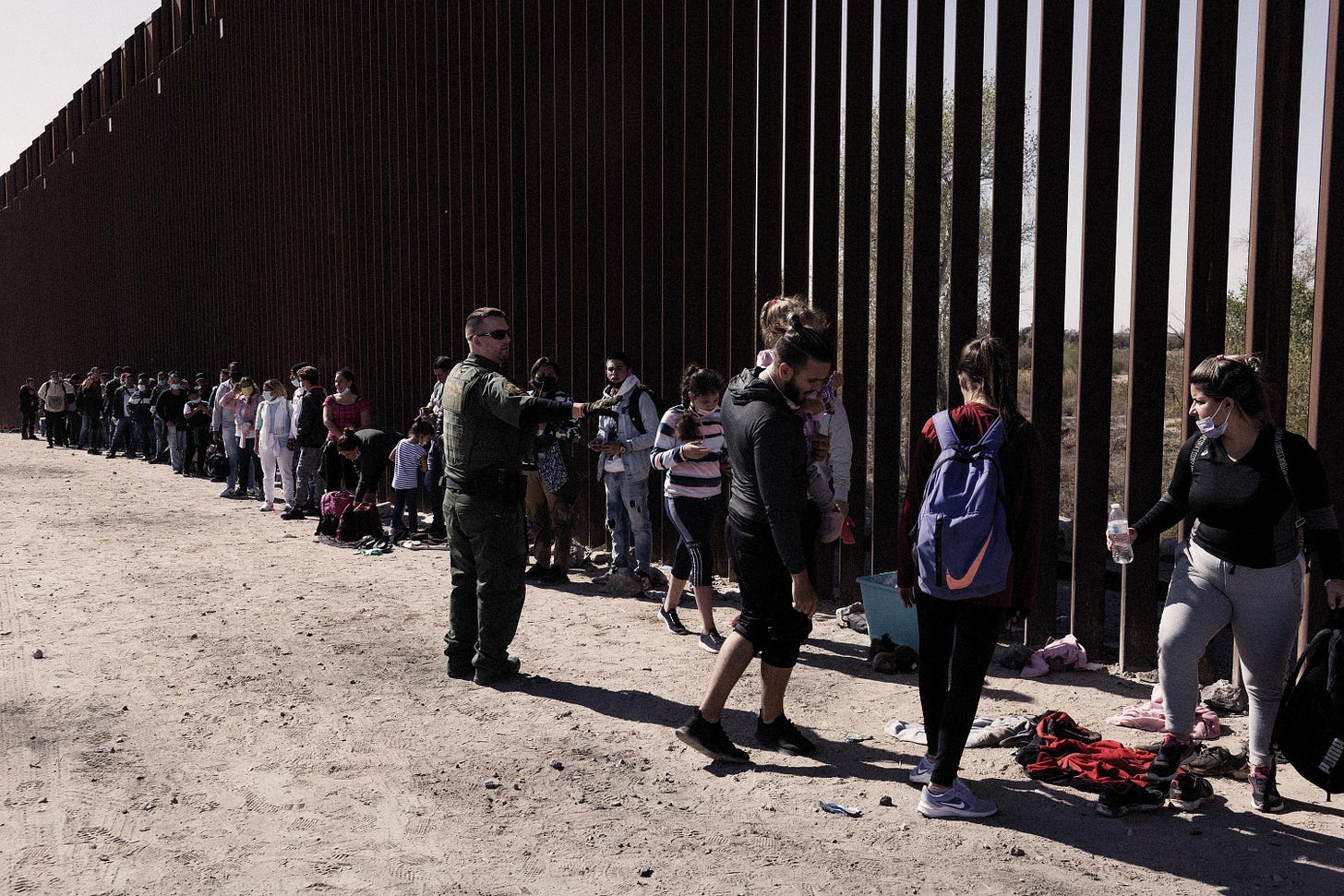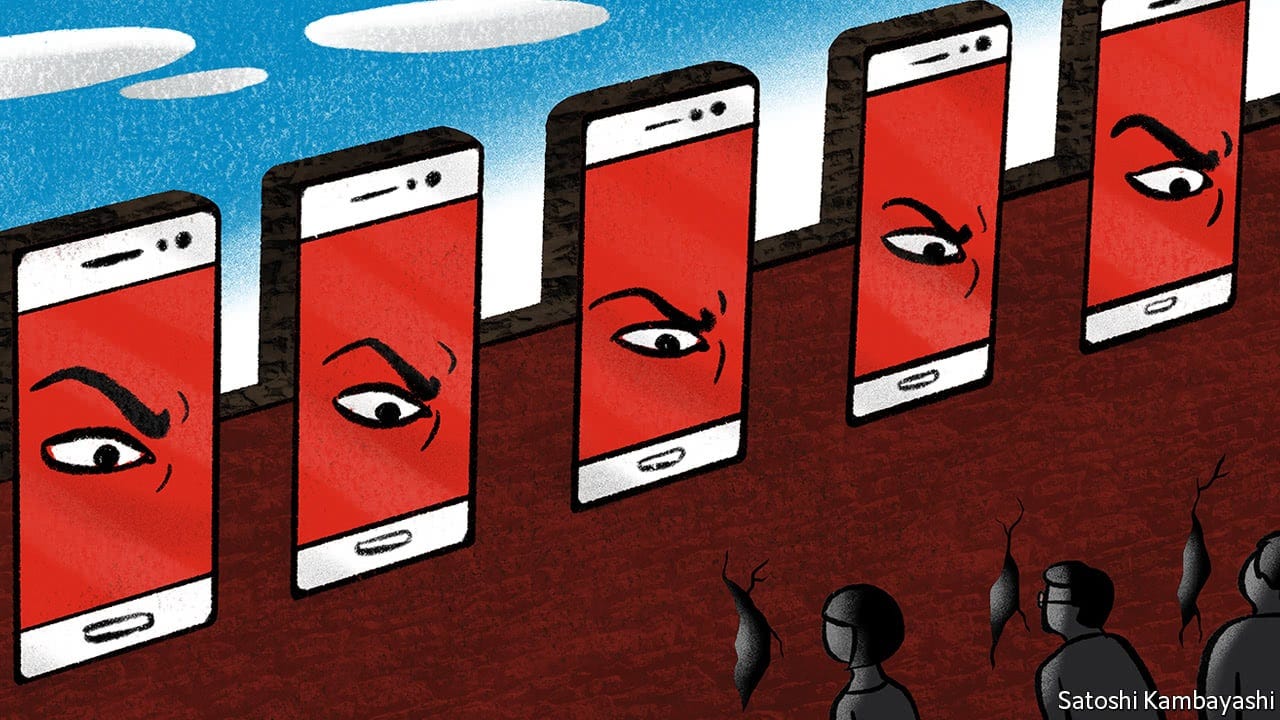Cyberspace is a land of political opportunity
Border, cyberborder, and the angry social contract theorists.
This post is a departure from my established norms. It is written as an English essay, which means less technical weeds, careful arguments, and more sentimentality than usual.
“Freedom,” Immanuel Kant writes, “is the unoriginated birthright of humans, and belongs to them by force of their humanity.” A world of justice must be a world that honors each and every human’s free will—for if an individual’s free will is not honored, they are deprived of the essence of their humanity.
This raises an important question: if the laws of the land conflict with an individual’s free will, do the laws have a moral binding force over the individual? In answer to this question, philosophers of the 17th century invented the social contract theory, which argues that laws can only have the moral authority to overwrite an individual’s free will if that person had agreed to abide by the law. The consent to follow a set of laws is thus akin to entering into a social contract with the jurisdiction of the land—the individual can enjoy the benefits and protections of the law as long as they follow the laws themselves. An essential aspect of justice, therefore, belies in protecting every individual’s freedom to enter and exit social contracts. If a person is not free to depart from a social contract which she finds unpalatable, she is thereby bound to the jurisdiction with which she signed the contract like a slave enchained to a master—she has been deprived the basic ownership of her own bodily autonomy. If an individual is not free to sign into new social contracts, he does not have the de facto freedom to quit the tyranny of his former contract—the social contractors’ rejections leave him with little alternatives to choose from but to endure the oppressiveness of his current nation. Thus, to forbid a person from leaving her country is to lock her behind the bars of a nation-size prison—a direct evil; to bar an individual from entering into your country is to condemn him to suffer and bereave him of the agency to self-betterment—an indirect evil.
To the ache of the common hearts, politicians of the modern era are not exactly moral philosophers with minds set upon championing the triumph of justice. Justice has regressed, globally. In the 1960s, the authoritarian East Germany erected the Berlin Wall, a scar on the face of the Earth. It was a proclamation of enslavement for all in East Germany, for their basic self-ownership of bodily autonomy had been confiscated. Many freedom-seeking East Germans did not relent, digging tunnels through the Berlin Wall, jumping wire fences, and even riding hot air balloons to escape their bondage. They were met with bloodshed—armed guards with orders to shoot-to-kill. The Berlin Wall epitomizes direct evil.
Fast-forward to the 21st century, the United States begins to erect fences across its entire border with Mexico, barring the influx of Mexicans and Central Americans who fled the destitute social economic environments and brutal gang wars of their home countries to find a new life in America. With few options on their plate, they come up north, determined to sign themselves into the American Contract. They come only to find rejection—barbed wire fences and armed patrolled guards—awaiting them. They are thus forced back into the destitute they were born into. Some persisted in their claims to self-agency, and scaled the barbed wire fencing to cross to the otherside at the risk of their lives.
“The Fool oppresses by forcing his subjects to abide by him. The Wise oppresses by leaving his subjects with no choice but to abide by him, and then claiming the title of the Benefactor.”
—me, 2022
The modern era’s infringement on our freedom of mobility does not stop there. “Border” is no longer an exotic term known only to the patrollers of the frontiers. Borders have grown inward into the heartland of every nation—borders have become the metal fencing separating your neighbor from your rented old shack; borders have become an invisible line distinguishing the well-kept grassland of a public park from the trash overrunning an adjacent walkway; borders have become the wooden walls separating your apartment from your neighbors’. Borders have grown upwards into the roof, splitting you from your neighbor upstairs. Borders have grown downwards into the floor. Borders have grown around you, twirling, contracting, until you are arrested inside a wooden box—until everyone is confined inside their own wooden box, cutoff from the outside world. Materialists call this box your “private property.” The box is yours. Well, you can do about as you please inside your box. You are free to travel between a glass box furnished with shelves and desks—called the “office”—back to this wooden box with beds and chairs. And that’s the extent of your freedom of mobility—other places are “private properties” owned by other people and they are, by all means, barred from you. You are left inside your wooden box, staring into another metal box that contains all the entertaining TV shows in the world to occupy your mind—you’ve become a subject of materialism. When extreme materialism divides up the land into strips of bordered-up private properties with no contractual terms by which an individual may enter, each individual is de facto imprisoned within the borders of a tiny box of land to which she is assigned at birth, severed from her externalities and any sense of communal lived experiences.
With their physical bodies confined within a cubicle, people have increasingly turned towards the internet as a gateway to the external world. Netizens are born. The internet constitutes an indispensable part of the lived experiences of these people.
The internet comes with borders too, and you cross them everyday. These borders are not demarcated by towering brick walls or pieces of wooden planks. They are imperceptible, crawling under your subconsciousness. That fateful moment when you swipe out of Instagram and press open Twitter, your personal essence has changed—the moment before you were a goofy Zoomer posting carefully engineered selfies taken from an optically optimal angle and furnished with an aesthetic filter; the next moment, you are punching serious sounding words into a white text box, and solemnly pressing the blue bolden word “Tweet” with the smug of a professional politician. A minute ago, you wrote in your email, “Dear Mr. Mackey, I’m happy to meet with you at any venue of your choice” but now, you have crossed back into the Zoomerland of iMessage, and you text, “lol idrc u choose :>” The moment you click open a website, tap open an app, you have entered a different cyberspace riling with its own norms and cultures. Each cyberspace is a tiny nation of its own: its culture becomes part of your identities, its rules have real effects on your way of life.
During the height of the pandemic two years ago, I joined a forum of politically minded laypeople with a shared aptitude for rational discourse. Their community is sheltered from the worst excesses and barbarism of the internet age, thanks, largely, to their stringent content moderation rules: anyone who makes a claim without backing it up with evidence is expelled from the forum. By the standards of die-hard champions of natural liberty, internet rules are strict and its executions authoritarian. There are no court proceedings, no legal defense, no trial by jury—the moderator clicks a button and you are sent packing, exiled from that cyberspace. Yet, the digital world remains a land of the free, because every person’s freedom of mobility is guaranteed. An exile can easily tap open Google, and casually pick another cyberspace to join from an infinite list of search results fed to his neural vision system by Google. Each netizen’s de facto freedom to exit and enter cyberspaces with norms agreeable to their personal taste is realized through lines of binary codes, an incarnation of the long-coveted Lockian dream of justice that our governments have failed to be.
Yet, despite the savioring force of the internet, the regression of justice has continued. Some agents have begun mauling the fabric of internet mobility freedom conferred upon every netizen. It is not enough that modern citizens are bound physically inside a box of space, their minds must also be barred within a tiny corner of the internet. In the early 2000s, the Great Firewall was constructed and the cyberborder has been fortified continually ever since. Unlike a towering wall of barbed wire fencing that reporters of the liberal world can point to and wag their fingers at, the Great Firewall is an invisible barrier, a 404 Page Not Found error whenever netizens access Google, or even an advisory notice from your local friendly neighborhood police department when a netizen trot their toes too far beyond the Party’s propaganda lines. With 80% of the internet off the chart, netizens’ lives are bounded within a gigantic digital walls, built for the singular purpose of mental confinement.
Internet technology opens up the new space of a digital world. If netizens do not stay vigilant, and resist injustice, agents of oppression may divvy it up, drawing borders and erecting fence posts over its surface, until the digital world becomes as restrictive and prison-like as our geographical world.




